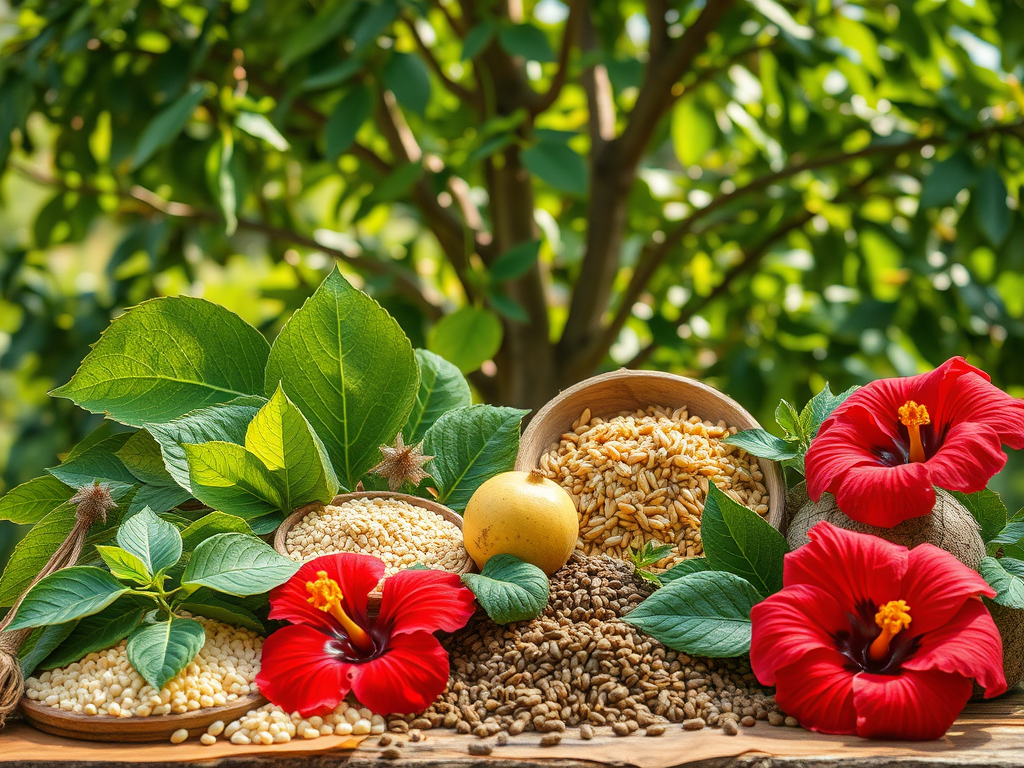In recent years, the global demand for superfoods has skyrocketed, driven by consumers’ growing preference for healthier lifestyles. Superfoods, known for their exceptional nutritional value and health benefits, are becoming staples in diets worldwide. African farmers are uniquely positioned to capitalize on this trend, leveraging the continent’s rich biodiversity and agricultural potential. Here’s how they can seize this golden opportunity.
What Are Superfoods?
Superfoods are nutrient-rich foods considered beneficial for health and well-being. They include items like Moringa, Baobab, Hibiscus, and Fonio, all of which have roots in African agriculture. These products are valued for their high levels of vitamins, antioxidants, and other essential nutrients. Their popularity has transformed them into premium commodities, sought after in Europe, North America, and Asia.
Key African Superfoods Making Waves Globally
1. Moringa
Often referred to as the “miracle tree,” Moringa is prized for its leaves, seeds, and oil, all of which are packed with vitamins, amino acids, and antioxidants. Farmers in Nigeria, Ghana, and Kenya have begun cultivating Moringa on a large scale to meet international demand. For instance, MoringaConnect, a Ghanaian enterprise, has established a successful business exporting Moringa products to global markets, creating income streams for thousands of local farmers.
In Nigeria, companies like Green Giants Agro Products export high-quality Moringa products to Europe and the Middle East, empowering smallholder farmers with sustainable income.
2. Baobab
Known as the “tree of life,” baobab produces fruit rich in vitamin C, calcium, and fiber. Its powdered form is a popular ingredient in smoothies and health drinks. Aduna, a UK-based company, sources baobab directly from communities in Senegal and Ghana, helping local farmers earn sustainable incomes while promoting the product internationally.
3. Fonio
An ancient grain native to West Africa, Fonio is gluten-free, rich in essential amino acids, and has a low glycemic index. It’s gaining traction as a superfood in the United States and Europe. Yoléle Foods, co-founded by Senegalese chef Pierre Thiam, has brought Fonio into mainstream grocery stores like Whole Foods, significantly benefiting West African farmers.
In Nigeria, Olu Olu Foods has started cultivating and exporting Fonio to meet the demand from international markets, promoting this indigenous crop while creating job opportunities for local communities.
4. Hibiscus
Hibiscus flowers are used to make herbal teas known for their tangy flavor and potential to lower blood pressure. Nigerian farmers, particularly in the northern region, have been cultivating hibiscus for export to markets in Germany and the United States, where the tea is highly sought after.
Nigerian company Hibiscus Processing Nigeria Ltd has established itself as a major player in the export of dried hibiscus flowers, enabling farmers in Kano and Jigawa States to access lucrative international markets.
Steps for African Farmers to Tap Into the Superfood Market
1. Grow the Right Crops
Farmers should identify superfoods that thrive in their local climate and soil conditions. Investing in high-quality seeds and adopting sustainable farming practices can boost yield and quality.
2. Focus on Processing and Value Addition
Raw products often fetch lower prices. Processing superfoods into powders, oils, or packaged teas increases their market value. For example, converting baobab fruit into powder can multiply its profitability.
3. Obtain Certifications
International buyers often require certifications like organic, fair trade, or HACCP (Hazard Analysis Critical Control Point) compliance. These certifications assure consumers of the product’s quality and safety, opening doors to premium markets.
4. Leverage Cooperatives and Partnerships
Farmers’ cooperatives can help reduce costs, improve bargaining power, and streamline access to markets. Collaborating with organizations like Fairtrade Africa can connect farmers with global buyers and ensure fair pricing.
5. Access Funding and Training
Governments, NGOs, and development agencies often offer grants, loans, and training programs for farmers venturing into superfoods. For instance, Nigeria’s Anchor Borrowers’ Programme has supported many agricultural ventures, including superfood farming.
Challenges and How to Overcome Them
1. Lack of Awareness
Many farmers are unaware of the global demand for superfoods. Government and private stakeholders must invest in education and outreach programs to highlight these opportunities.
2. Market Access
Navigating export logistics can be daunting. Farmers should partner with export-focused companies like Aduna or Yoléle Foods that have established global distribution networks.
3. Climate Change
Unpredictable weather patterns can impact crop yields. Investing in climate-smart agriculture, such as drip irrigation and drought-resistant crop varieties, can mitigate these risks.
Success Stories from Nigeria
Green Giants Agro Products
This Nigerian company collaborates with over 1,000 smallholder farmers to cultivate Moringa. By exporting Moringa powder and oil to international markets, it has created sustainable income streams for rural communities.
Olu Olu Foods
Specializing in indigenous grains like Fonio, Olu Olu Foods has expanded Nigeria’s presence in global superfood markets. The company partners with farmers in the North-Central region, promoting modern farming techniques and boosting exports.
Hibiscus Processing Nigeria Ltd
Based in Kano, this enterprise works with thousands of hibiscus farmers, providing them with the tools and training needed to meet international quality standards. The company’s efforts have significantly increased Nigeria’s hibiscus export earnings.
Conclusion
The rise of superfoods offers a transformative opportunity for African farmers. By growing high-demand crops like Moringa, baobab, Fonio, and hibiscus, and focusing on value addition and quality certifications, farmers can tap into lucrative international markets. With the right support and strategies, Africa’s agricultural sector can take center stage in the global superfood revolution, driving economic growth and sustainability.
Now is the time for African farmers to seize the superfood moment and thrive


